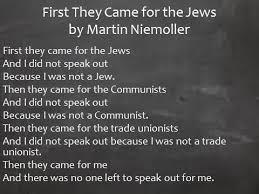 This is a time of extremism. Marchers with torches and swastikas chant “Jews will not replace us,” and the president sees there some “very fine people.” Maybe my own condemnatory blog posts seem extreme. Where today is the space for moderation?
This is a time of extremism. Marchers with torches and swastikas chant “Jews will not replace us,” and the president sees there some “very fine people.” Maybe my own condemnatory blog posts seem extreme. Where today is the space for moderation?
The ancient Greeks deemed moderation in all things a virtue. Yet they valorized some pretty extreme doings — like the Trojan War — perhaps a wee overreaction, that?

He had a point; yet this sidestepped the real issue. As an old song said, “it ain’t what you do, it’s the way how you do it.” It’s not whether one’s views on issues are consonant with liberty and justice (and who doesn’t think so?) or are closer to the political center or the fringes. Either can equally inspire zealotry. The moderation to be sought is not moderation of ideas but of approach. It’s the mentality you bring to the political arena.

David Brooks
A recent David Brooks column is illuminating. “Moderates do not see politics as warfare,” he writes. “Instead, national politics is a voyage with a fractious fleet. Moderation is a way of coping with the complexity of the world.” Here, with my own take, are the aspects of moderation Brooks identifies:
“The truth is plural.” When it comes to big public questions, there usually isn’t a single simple answer. Competing viewpoints may each be at least partially right. Hence “creativity is syncretistic” — combining pieces from varied viewpoints to produce a way forward which, while imperfect from the standpoint of any one of them, is pragmatically workable, given all the political and situational constraints. Again — don’t let the perfect be the enemy of the good. (Examples included Simpson-Bowles and, yes, Obamacare.)
“In politics, the lows are lower than the highs are high.” The potential for doing harm, particularly by government, exceeds the potential for doing good. Especially given the law of unintended consequences. This suggests restraint when looking to address any problem through politics.

“Humility is the fundamental virtue.” The world’s complexities defy our understanding. And for all the certainty I feel about some beliefs — evolution, for example — I recognize that people hold opposite beliefs with equal moral certainty. If I think they’re nuts, they think I am, and there’s no intellectual Supreme Court to resolve it. I recall Cromwell saying, “I beseech you, in the bowels of Christ, think it possible you may be mistaken;” and apply it to myself.

Voltaire
I’d like to add here, “So respect others and their views.” However, I cannot; not when marchers with swastikas chant about Jews. But what I will do yet again is to quote Voltaire: “I disagree with what you say but will defend to the death your right to say it.” This is indeed a key principle that is succumbing as American politics polarizes into extremism. There are many reasons why that’s happening. Brooks has elsewhere suggested one: in an age of so much moral uncertainty, some embrace absolutism in an effort to find solid ground. Thus we get the Savonarolas who want to punish and stamp out anyone not embracing their version of truth — as in the recent case of the engineer fired from Google for writing what some read as a politically incorrect memo.
Well, you do not have to respect those you disagree with — like those marching neo-Nazis. You can call them what they are, and condemn their ideas. But what you do have to do is accept their humanity and their right to be who they are. Not fire them from their jobs or jail them — or plow your car into them.
Wage war, if you must, against ideas — not against people. That is the moderation I advocate.
Never forget that if those neo-Nazis can be fired, punished, or repressed, the same principle can be turned around one day and applied to you.

